Alumni
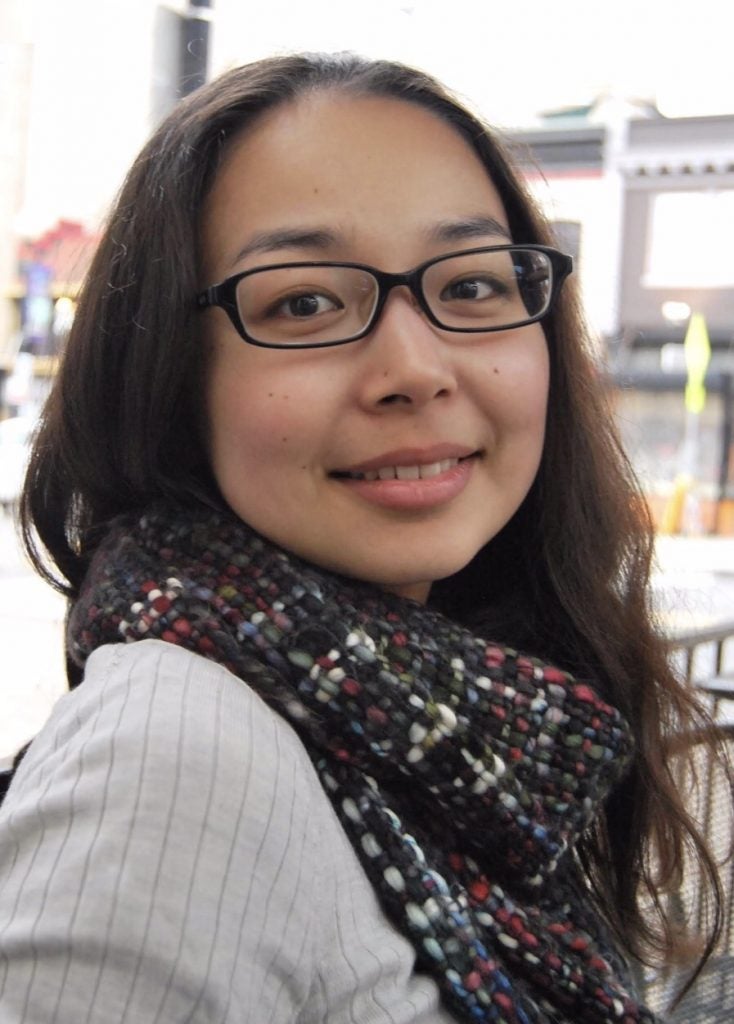
ERIKO OKAMOTO
Arabic and Islamic Philosophy
BA (2016), Summa Cum Laude, Philosophy, University of Dayton
The Rev. Charles C. Bloemer, S.M., Award of Excellence in Philosophy (2015)
The Rev. Charles Polichek First Award of Excellence in Philosophy (2016)
Eriko works on Arabic and Islamic philosophy, especially on the transmission and adaptation of Greek knowledge into Arabic. She is currently writing her dissertation on the 10 th -century philosopher Abū Naṣr al-Fārābī’s theory of knowledge. She is a recipient of the Templeton Foundation Doctoral Fellowship for the Theology, Science, and Knowledge project at the Philosophy Department at the University of Missouri, St. Louis for the Academic Year 2020-2021. She has presented her work at various conferences, including annual meetings of the Middle East Studies Association (MESA) and the American Philosophical Association (APA). She also has an interest in manuscript studies.

KAREN MCNEIL
Arabic Linguistics
MA (2012), Arabic Language, Literature and Linguistics, Georgetown University
BA (2000), Wellesley College
Karen McNeil is a PhD candidate whose research interests include Arabic sociolinguistics, Tunisian Arabic, and literary translation. Her main interest is the changing status of the spoken vernaculars in the Arab world: she is currently writing her dissertation on the development of Tunisian Arabic as a written language. Her dissertation focuses on the spelling and code-switching choices that Tunisians make when writing a yet-to-be-standardized language, and what these reveal about collective and individual identity stances. In this work, Karen is making use of the Tunisian Arabic Corpus, a million-word, publicly-available corpus of Tunisian vernacular Arabic that she has been developing since 2011.
Karen has published several articles on topics related to Tunisian Arabic, including a forthcoming paper in Perspectives on Arabic Linguistics XXXIV entitled “When the leak becomes a flood: The development of vernacular literature in Tunisia.” In addition to sociolinguistics, she has published on Tunisian grammar, corpus linguistics, and Arabic lexicography. Karen has presented on these topics at conferences including the Annual Symposium on Arabic Linguistics (2019, 2020), the Arabic Linguistics Forum (2018), the Middle East Studies Association (2014), and the Workshop on Arabic Corpus Linguistics (2011, 2013). She was the invited keynote speaker at the University of Vienna’s International Symposium on Tunisian and Libyan Arabic Dialects in 2015. Her research has been supported by grants from the American Institute for Maghrib Studies (AIMS), the Graduate School of Arts and Sciences at Georgetown University, and the Department of Arabic and Islamic Studies.
In addition to her academic research, Karen has done extensive work in Arabic translation, lexicography, and consulting. Along with her co-translator Miled Faiza, she recently completed the English translation of Shukri Mabkhout’s novel The Italian (2021), winner of the International Prize for Arabic Fiction in 2015. She has also translated many shorter works for publications including Banipal and World Literature Today. In addition, Karen was the lead revising editor (Arabic–English) for the Oxford Arabic Dictionary (2014). Most recently, she has worked as a computational linguist, performing semantic annotation and building Arabic corpora for MITRE Corporation.
Karen lives in Rhode Island with her husband, the Tunisian-American poet Miled Faiza, and their three children. Outside of work and research, her hobbies include baking, astrophotography, and coding in Python.
Personal website
Academia.edu page
Research website
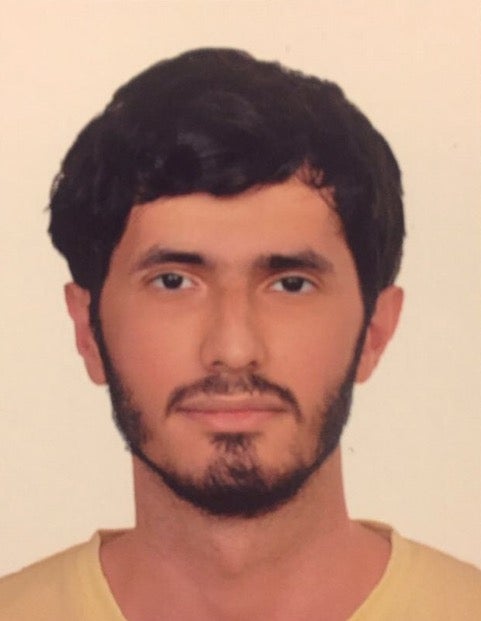
MOHAMMAD FAKHREDDINE
Classic and Modern Arabic poetry
MA (2017), English Literature, American University of Beirut
BA (2014), English Literature, American University of Beirut
Mohammad Fakhreddine is a PhD candidate with a concentration in Arabic Literature. He earned his BA and MA in English Literature from the American University of Beirut (AUB). His Master’s Thesis focused on Modern Arabic Poetry, more specifically the stylistic and technical innovations of the Free Verse Movement in the 20th century. Mohammad’s areas of interest include Classical and Modern Arabic poetry, poetic stylistics and metrics, and Arabic language and identity.
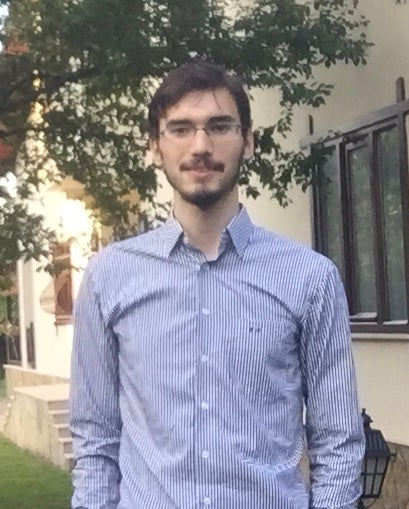
ALI CEBECI
Hadith, Hadith Commentary, History of Early Islam, Companion Biography
MA (2018), History, Istanbul Sehir University, Turkey
BA (2016), with Highest Honors, Near Eastern Studies, Princeton University
F.O. Kelsey Prize for Best Second Term Junior Paper (Spring, 2015) Near Eastern Studies, Princeton University
Intensive Ottoman-Turkish (Summer, 2014) Istanbul Sciences Institute, Turkey
Intensive Arabic (Summer, 2013), Qasid Institute, Jordan
Ali Cebeci is interested in the formative period of the Islamic intellectual sciences. In particular, he studies the development of the hadith sciences and the role various types of hadith played in the growth of Islamic theology, jurisprudence and historiography. Additionally, he is interested in the history and historiography of early (i.e. 5th-7th century) Islam, and in particular, the portrayal of the Companions in classical Sunni historiography. He joined Georgetown University’s PhD program of Arabic & Islamic Studies in Fall, 2018.
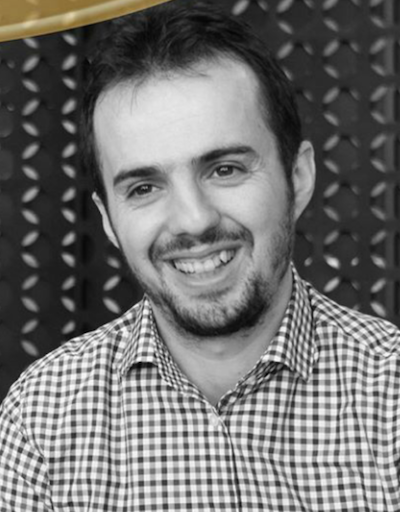
REZART BEKA
Islamic Law, Contemporary Islamic Thought, Ijtihad and Reform in Contemporary Islam
MA (2016), Contemporary Muslim Thought and Societies, Summa cum laude, Hamad Bin Khalifa University (HBKU), Qatar
MA (2011), Interdisciplinary Studies of Religions and Cultures, Summa cum laude, Pontifical Gregorian University, Rome, Italy
BA (2004), Sociology, University of Tirana
Rezart Beka received B.A. in Sociology from the University of Tirana in 2004. He obtained his first M.A. (with summa cum laude) in Interdisciplinary Studies of Religions and Cultures (with specialization in Christianity) from the Pontifical Gregorian University in Rome, Italy in 2011, and his second M.A. (with summa cum laude) in Contemporary Muslim Thought and Societies at Faculty of Islamic Studies (FIS) of Hamad Bin Khalifa University (HBKU) in Qatar, in 2016. He did intensive Arabic language courses at Diwan Center for Arabic Language in Cairo, Egypt in 2007-2008 and at Qatar University in 2012-2013. His areas of interest include Islamic Law, Contemporary Islamic Thought, Ijtihad and Reform in Contemporary Islam, Theology and Social Sciences in Contemporary Islam, Interfaith Dialogue, Comparative Theology, and Theology of Religions.
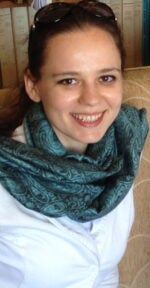
DILYARA AGISHEVA
Ottoman Islamic legal history
M.A. (2012), Islamic Law and Middle Eastern History, Columbia University
B.A. (2008), Middle Eastern Studies and Political Science, University of California, Los Angeles
Center for Arabic Study Abroad (CASA) Fellowship (2015-16)
Summer Language Study Grant, Institute of Turkish Studies (2014)
Dilyara’s interests are in Islamic legal history, specifically under the Ottomans. For her dissertation research, she plans to focus on criminal law in the nineteenth-century Ottoman Empire.
For her most recent papers see the News section of our website.

HEBA ARAFA
Popular culture, Islamic law, modernity
Fulbright Fellow, FLARE Program (Multimedia and SLA) University of Iowa (2007-08)
B.A. in English Literature and Linguistics from Mansoura University (2001)
Prior to joining the Ph.D. program at Georgetown, Heba was a Fulbright Fellow at the FLARE program of the University of Iowa. She has also completed graduate coursework in English literature at Mansoura University and in comparative literature and postcolonial studies at Cairo University. Her research interests were very interdisciplinary and ranged widely from Arabic classic religious texts such as the Qur’an and Prophetic tradition to popular culture and rap music. Her most recent research focused on film, media, and popular culture at the intersections of Islamic legal traditions and discourses of modernity in twentieth-century Egypt.
Her publications include: “Stuck with Him: Bassem Youssef and the Egyptian Revolution’s Last Laugh,” co-written with Joel Gordon, Review of Middle East Studies 48 (2014): 34-43, and “Mediating Discourse of Democratic Uprising in Egypt: Militarized Language and the “Battles” of Abbasiyya and Maspero,” co-written with Mervat Youssef and Anup Kumar, International Journal of Communication [Online] 8 (2014).
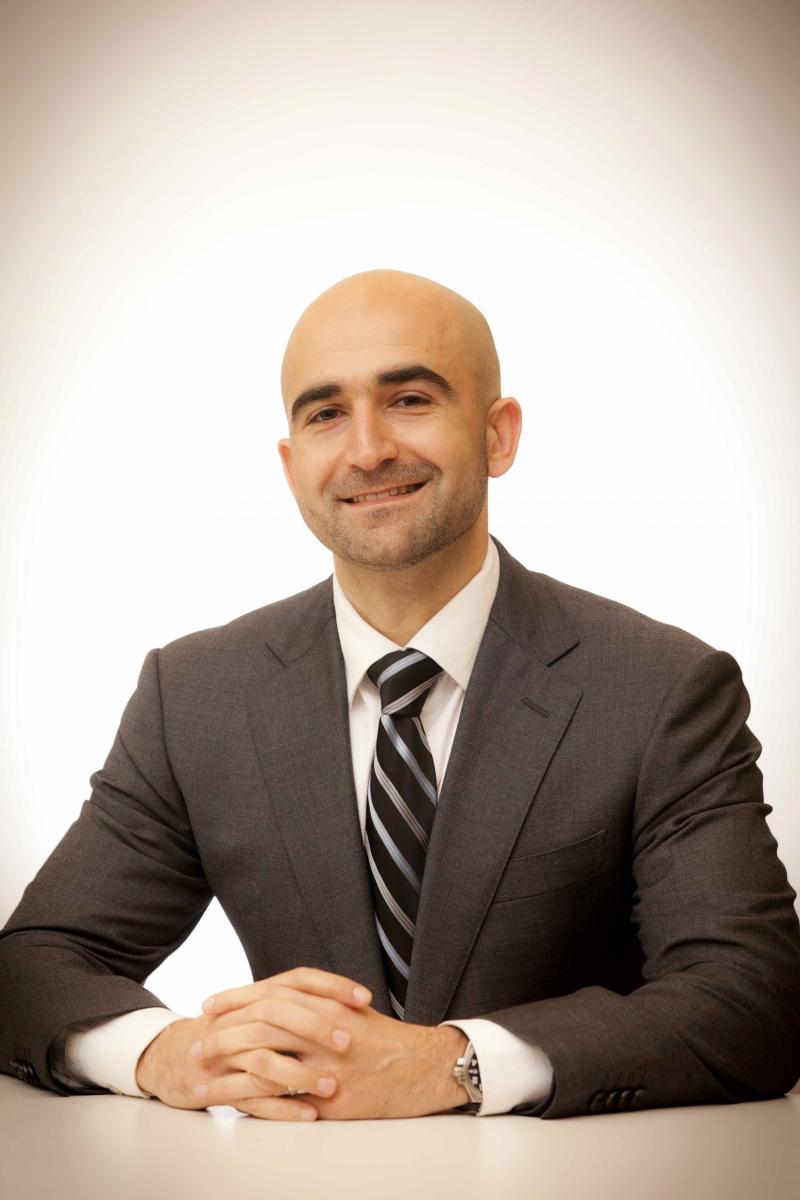
NABIL HAGE ALI
Shīʿa studies (social movements, theology, comparative Islamic law)
M.A. (2009), Arabic Language and Literature, Georgetown University
B.A. (2000), Mathematics and Computer Science, American University of Beirut
Research Fellowship, Georgetown School of Foreign Service in Qatar (2014-15)
Nabil completed his Ph.D. in Islamic Studies. His dissertation, “Becoming Rebels: Community, History, and Religious Education in Twentieth-Century Shīʿī Lebanon (1966-1982),” focused on Shīʿī Islamic Activism in Lebanon, reconsidering the beginnings of religious identification in Shīʿī Lebanon. In addition to social movements, Nabil’s interests included Sunni-Shīʿī interactions during the twentieth century, comparative Islamic Law, and Shīʿī theology.
Before joining the Arabic and Islamic Studies department at Georgetown, Nabil studied Mathematics and Computer Science at the American University of Beirut. He then worked for several years in the field of Information Technology as a software engineer and data analyst. Bringing his technical and academic experiences together, he developed an interest in digital humanities, particularly in the area of visualizing history.
He has given several talks at different venues, including “The Interplay between Sociopolitical Developments and Transformation of Islamic Discourse in Iraq: A Study on the Shīʿī Political Thought of Muḥammad Bāqir al-Ṣadr,” at The Department of Near Eastern Studies, Princeton University (April 2012).
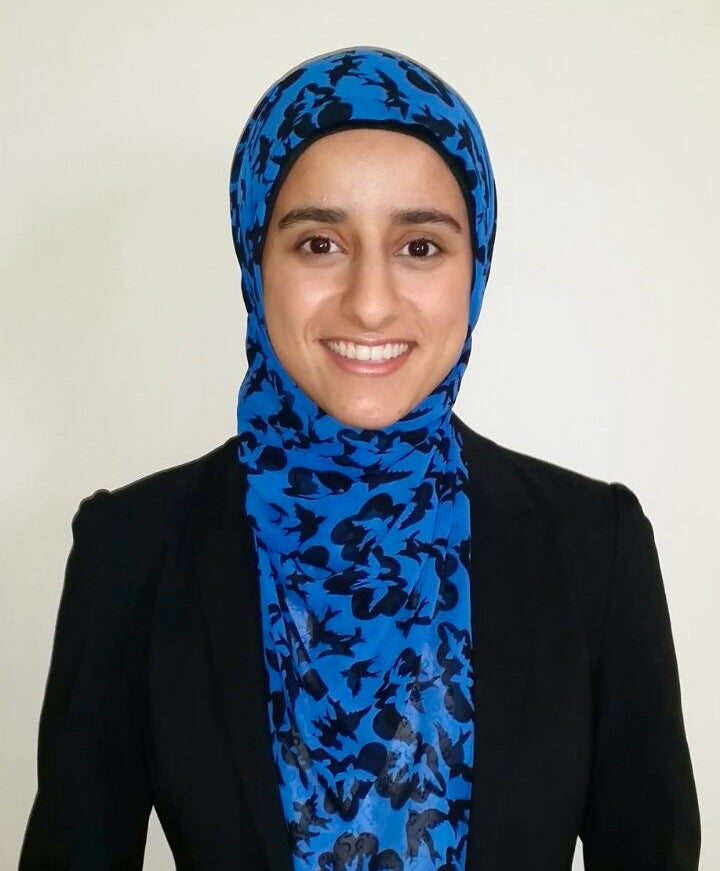
TESNEEM ALKIEK
Islamic jurisprudence
B.A. (2015), Arabic and Islamic Studies (minors in Religion and Early Christianity), University of Michigan, Ann Arbor
Hajja Razia Sharif Sheikh Scholarship in Islamic Studies (April 2015)
Robert Hayden Humanities Award, Goldstein Prize (April 2015)
Center for the Education of Women Reicker Research Grant (April 2014)
Michigan Honors Travel Grant (March 2014)
Michigan Center for Early Christian Studies Award (April 2013)
Tesneem is interested in the development of Islamic jurisprudence and its evolution based on various cultures and societies. She is also interested in the canonization of Islamic legal sources and how the level of authority of key references has varied with contemporary challenges. She was particularly looking forward to analyzing the works of Ibn Qayyim al-Jawziyyah in order to understand his methodology of law in relation to his community.
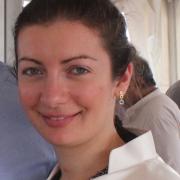
ROSABEL PAULINE ANSARI
Arabic and Islamic philosophy
B.A., M.A. (2012), 1st Class with Honors, University of Cambridge
Summer FLAS Fellowship (2015)
Summer Language Study Grant, Institute of Turkish Studies (2015)
Middle Eastern Studies Dissertation Prize, University of Cambridge (2012)
Rosabel wrote her dissertation on tashkīk al-wujūd (the ambiguity of being) in Arabic philosophy where she explored the relationship between metaphysics and the philosophy of language. Her dissertation focused on the genesis of tashkīk al-wujūd as a concept in Farabi and the Graeco-Arabic translation movement. Through this research, she sought to contextualize and further our understanding of tashkīk al-wujūd in Islamic philosophical writings of the post-classical period in which it would enjoy a renewed fluorescence. Additionally, Rosabel maintains a broad interest in the interactions between the falsafa tradition and Sufism, particularly the school of Ibn al-ʿArabī. For her most recent papers, see here.
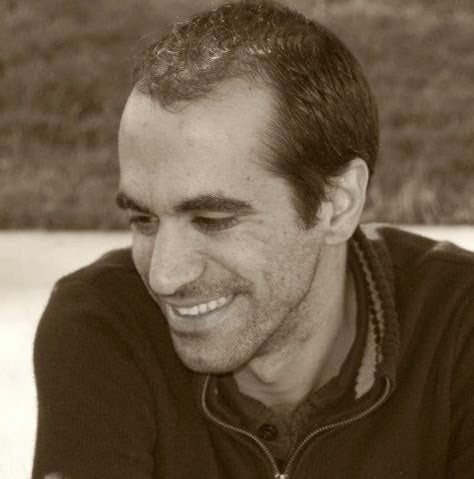
SERAJ ASSI
Comparative history of Israel/Palestine
M.A. (2008), Arabic and Islamic Studies, Tel Aviv University
B.A. (2005), Arabic and Islamic Studies, University of Jordan
Prince Alwaleed Bin Talal Non-Service Stipend Award (2015-16)
Dissertation Proposal Development Fellowship, Social Science Research Council (2014)
Oxtoby Essay Prize, Georgetown University (2012)
Seraj’s research examined the history and politics of nomadism in Mandate Palestine. By nomadism, he referred to the emergence of a territorialist discourse that views tribal formation as the antithesis of rootedness, belonging, and national identity. Drawing on primary sources in Arabic and Hebrew, he aimed to show how local conceptions of nomadism have been reconstructed on new legal taxonomies rooted in modern European theories and praxes. By undertaking a comparative approach, he maintained that the introduction of these taxonomies transformed not only local Palestinian perceptions of nomadism but perceptions that had characterized Hebrew and Jewish literature.
Seraj had already been published in academic journals as well as public media. His publications include “Memory, Myth and the Military Government: Emile Habibi’s Collective Autobiography,” Jerusalem Quarterly 52 (2013). Contributions to several major newspapers include “Ben-Gurion and Me,” Jerusalem Post, April 1, 2014 and “Watching ‘Avatar’ from Palestinian Perspective,” Arab News, February 17, 2010.
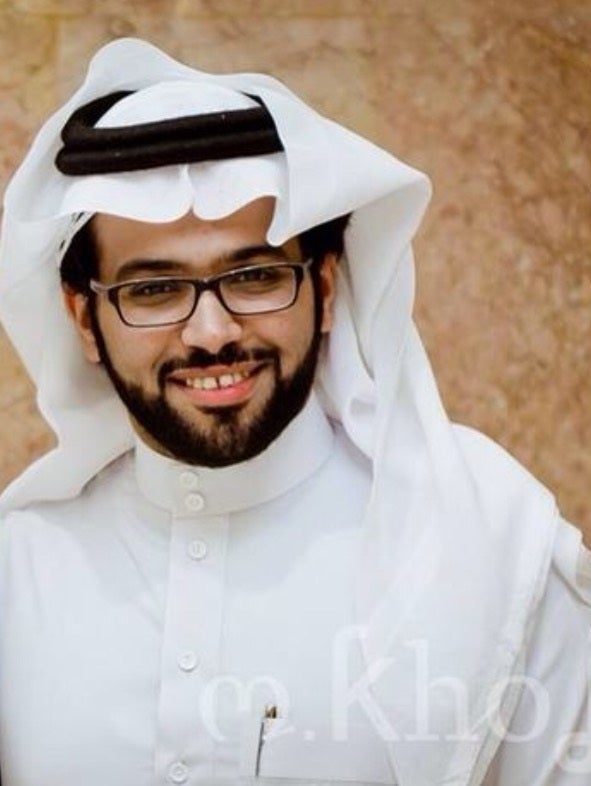
HASAN ALSULAMI
Arabic poetry and literary criticism
M.A. (2015), Yale University
B.A. (2009), Umm Al-Qura University, Makkah, Saudi Arabia
Hasan Alsulami received his Ph.D. in Arabic and Islamic studies. His interests lie in modern and pre-modern Arabic literature, especially in the 17th/11th centuries. Before joining the department of Arabic and Islamic studies at Georgetown, he received his M.A. from Yale University, where he wrote a thesis on the modern reception of the Arabic poetic concept of ʿamūd al-shiʿr (the pillar of poetry). As an undergrad, he studied Arabic language and literature at Umm al-Qura University in Makkah where he also attended several traditional courses held at several masjids on Arabic grammar, rhetoric, and logic. Following recent scholarship which attempts to reread pre-modern Arabic and Islamic culture by its own right, and under the supervision of Dr. Suzanne Stetkevych, he completed his dissertation on Arabic poetic aesthetics in the 17th/11th century. Through an examination of the major biographical dictionary Sulāfat al-ʿaṣr fī maḥāsin al-shuʿarā’ bi-kulli miṣr (The Purest Wine of The Present on The Merits of Poets in Every Region) of the Ḥijāzī scholar Ibn Maʿṣūm al-Madanī (d. 1709), Hasan is trying to investigate how poetic aesthetics (al-maqāyīs al- shiʿriyyah) developed from the Classical Period (Ibn Ṭabāṭabā, al-Jurjānī, Ibn Rashīq, etc.) to the Post- Classical Period. And to what extent Nahḍa (Arab awakening/renaissance) portrayed it.
Hasan presented papers on Saudi literature (2016), and modern Arabic travelogue literature (2019) as well as received an appointment as a visiting fellow at King Faisal Center for Research and Islamic Studies in Riyadh (2019/2020) as well as a Georgetown Dissertation Research Travel Grant.
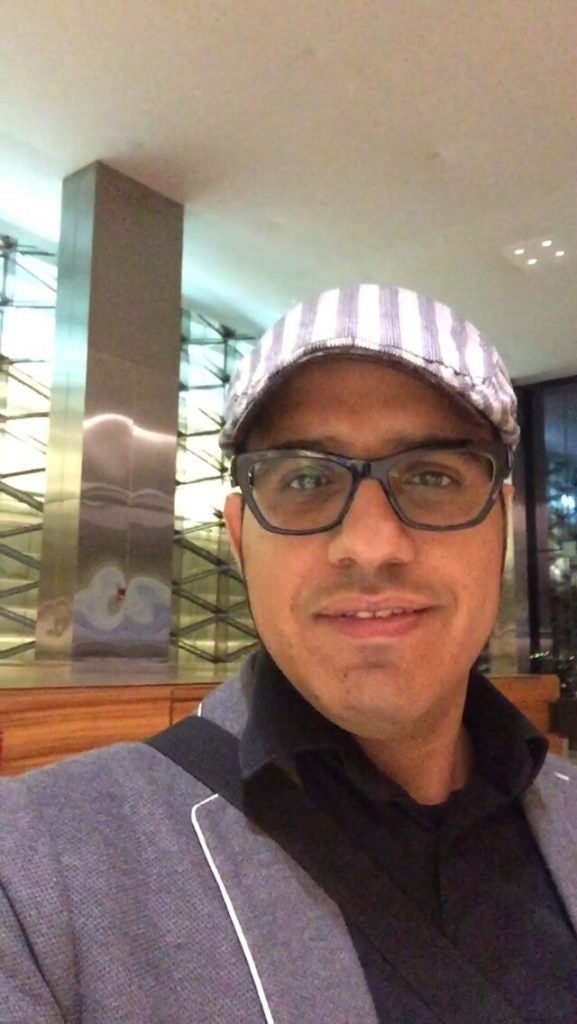
HATEM AL-ZAHRANI
Classical and modern Arabic poetry and poetics
M.A. (2014), Arabic and Islamic Studies, with Honors, Yale University
M.A. (2009), Arabic Literature, First Honors, Umm Al-Qura University, Makkah, Saudi Arabia
B.A. (2004), Arabic Literature, Umm Al-Qura University, Makkah, Saudi Arabia
“Poet of Creativity” award, Abu Dhabi Authority for Culture and Heritage (2008)
Hatem al-Zahrani is a published poet and writer from Saudi Arabia. Upon completing his BA, he taught classical and modern Arabic literature, poetics, and literary theory for four years. Hatem’s research interests revolved around classical and modern Arabic poetry and poetics, with a special focus on the image of the poet in classical poetry. He is further interested in literary theory, cultural and cognitive poetics, the cultural and literary history of Saudi Arabia, and the reception of classical Arabic literary concepts in modern Arabic discourse.
When he joined the Arabic and Islamic Studies program, Hatem had already published two books in Arabic. Shajāʿat al-ʿaql: dirāsa fi-al-fikr al-shiʿrī wa-al-nasīj al-lughawī ʿinda al-Mutanabbī (The Courage of the Mind: A Study in the Poetic Thought and the Linguistic Texture of al-Mutanabbī), Arab Institute for Research and Publishing, Beirut, 2010, inquires whether the concept of the mind (ʿaql) can be understood as a nexus of al-Mutanabbī’s “world-view” and as affecting the structure of his poems. One of the aims of this study was to find out what transformations a concept such as the “mind” could undergo when transposed into an aesthetic context such as poetry. Click here to read a review of the book. Al-yāʾu yāʾī (The Letter Yā’ is Mine), Arab Institute for Research and Publishing, Beirut, 2010 is a poetry collection. His poems along with his op-eds have appeared in Al-Hayat newspaper, among other media outlets.
His recent talks include “When the Later Gives Birth to the Former: Word-Meaning Relation between al-Jurjānī and Saussure,” an invited talk at the NELC Roundtable at Yale University (April 3, 2014) and “A Poetry Reading Night with Hatem Alzahrani,” Yale Arabic Colloquium, Yale University (April 23, 2014).

FERIEL BOUHAFA
Islamic political philosophy, Islamic law, ethics
B.A. (2000), English Language and Literature, Institut Superieur des Langues de Tunis, Tunisia
M.A .(2006), Culture Studies, Faculte des Lettres, Manouba, Tunisia
Postdoctoral Fellowship, Philosophy Department, Albert Ludwig University of Freiburg (2015-17)
Civil Society Scholar Award, Open Society Foundation (Fall 2014)
Feriel wrote her dissertation on the notion of the written and unwritten law based on Ibn Rushd’s Middle Commentary on Aristotle’s Rhetoric. She was a recipient of the Open Society Civil Society Scholar Award, which she used to travel in order to consult some of Ibn Rushd’s manuscripts at the Medicea Laurenziana Library in Florence and at the Suleymaniye in Istanbul. Her research interests covered Islamic political philosophy, Islamic law, and ethics. Feriel was also interested in manuscript studies; in 2013 and 2014 she took part in a series of workshops in Beirut, organized under the European Research Council Advanced Grant Project Philosophy in Context: Arabic and Syriac Manuscript Transmission in the Mediterranean World. She has an upcoming publication based on her dissertation research, which will be published in the volume Interpreting Averroes: Critical Essays, edited by Peter Adamson and Matteo Di Giovanni (Cambridge University Press, forthcoming, 2016).

ABDUL RAHMAN CHAMSEDDINE
Early Islam, Qur’an, religious identity
M.A. (2009), History, American University of Beirut
Diplôme Universitaire (2004), Islamic-Christian Studies, Université Saint-Joseph, Beirut
B.A. (2004), Islamic Studies, Makassed Institute of Islamic Studies, Beirut
B.A. (2003), Business Management, Business, and Computer University
Faculty Research Grant, “Qur’anic Terminology in Modern Public Sphere,” Georgetown SFS-Q (2014-15)
Medal of Honor for High Achievement, Makassed Institute of Islamic Studies (2004)
Abdul Rahman completed his undergraduate work, with honors, at the Makassed Institute of Islamic Studies in Beirut, where he learned to handle primary Arabic and Islamic sources in accordance with traditional Muslim practice. After completing his B.A. at Makassed, he enrolled at Université Saint-Joseph in Beirut in the Faculté des Sciences Religieuses, at the Institut d’Études Islamo-Chrétiennes, for the study of comparative religion. Here, engagement in Muslim-Christian dialogue made him reconsider his understanding of religion in general. This brought him to the History Department at the American University of Beirut to pursue his Master’s degree, where he began to read the Western literature on Islam, which had not been a major component of his earlier training.
Through teaching students of various backgrounds, Abdul Rahman has realized that he can play a crucial role in enriching cross-cultural awareness, especially in terms of religion. His familiarity with Eastern as well as Western literature on Islam, along with his undergraduate training in Muslim and Christian thought, equipped him to join the doctoral program at Georgetown. He is currently working as an Arabic Language instructor at Georgetown’s School of Foreign Office in Qatar and proceeding with his doctoral research. His research was focused on Arabic terminology of early Islam and more specifically the Qur’anic terms that describe religious identities and other social groupings.
Among his most recent publications: “The Quranic Word hanif and its Explanation in the Light of the Syriac Root,” in Kozah M., Abu-Husayn, A., Al-Murikhi, S.Sh. (eds.), The Syriac Writers of Qatar in the Seventh Century, Piscataway, NJ: Gorgias Press, 2014, p. 71-80.
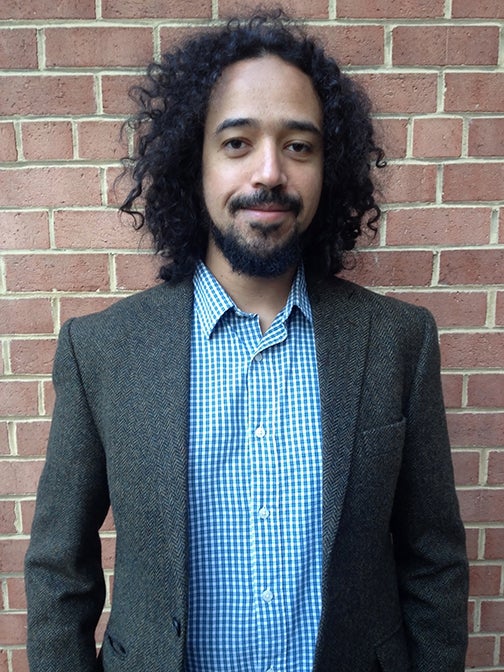
MOHAMMED EL-SAYED BUSHRA
Political theory, philosophy, Muslim political thought
M.Sc. (2013), Political Theory, London School of Economics
M.A. (2012), Islamic Studies, University of Khartoum, Sudan
M.Eng. (2008), with Honors, Systems Engineering, Loughborough University, UK
Mohammed’s primary research area was comparative political theory. His research interests also included modernity, Islamic law, political theology, Salafism, continental philosophy, and contemporary Muslim political thought. He holds an MSc in Political Theory from the London School of Economics and Political Science, an MA in Islamic Studies from the University of Khartoum, and an MEng. (Hons) in Systems Engineering from Loughborough University. He started at Georgetown in 2013.
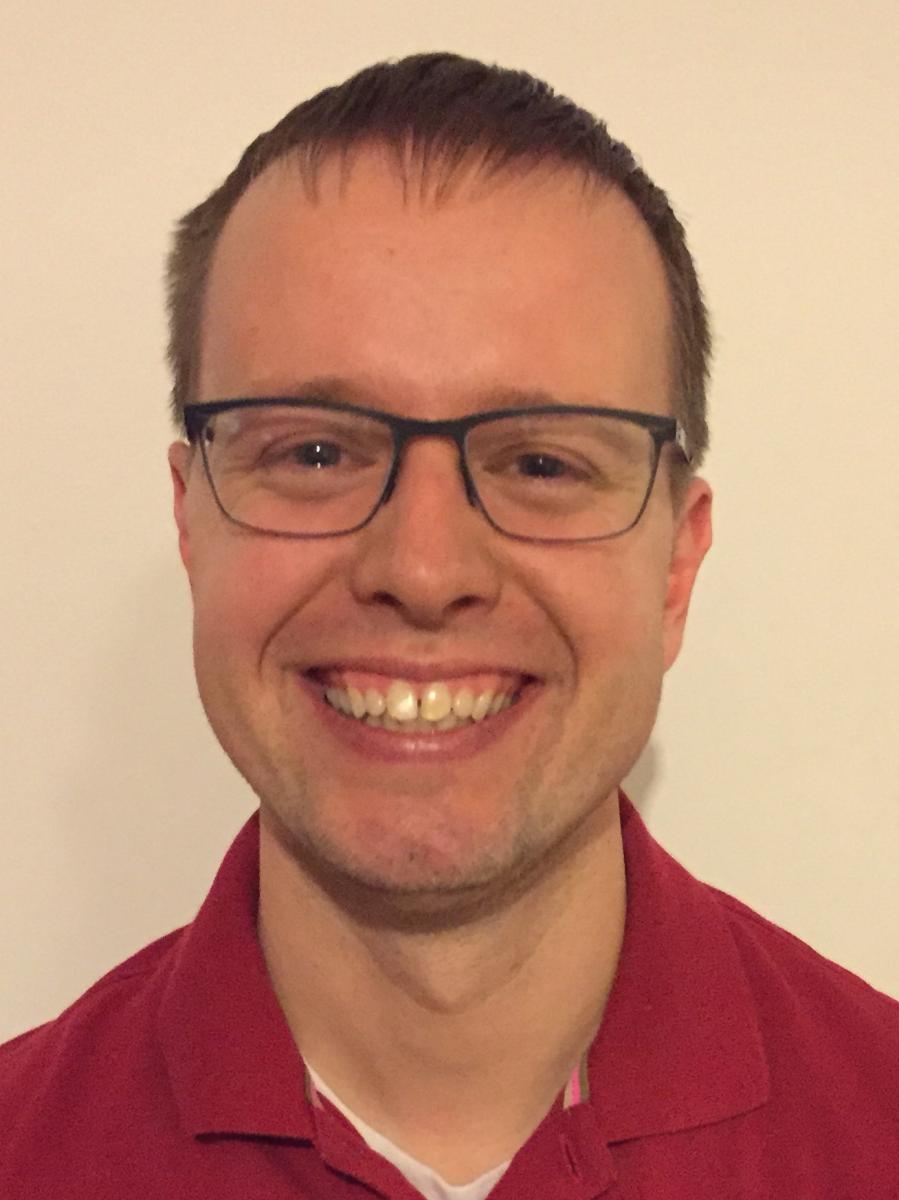
TUVE FLODEN
Religious authority in Islam, modern Islamic movements
M.A. (2006), Near Eastern Studies, University of Arizona
B.A. (2000), French, University of Michigan
Prince Alwaleed Bin Talal Non-Service Stipend Award (2014-15)
Tuve began the Islamic Studies program in 2010. His dissertation research examined the phenomenon of Muslim televangelism, looking at the common themes these duʿa address, as well as how they present and frame their religious authority/legitimacy.
For his most recent papers see the News section of our website.
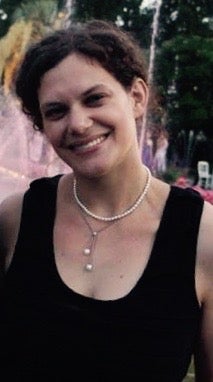
ANNY GAUL
.Gender and the body, domesticity, culinary cultures
M.A. (2012), with Distinction, Arab Studies, Georgetown University
B.A. (2007), with Honors, Humanities, Yale University
American Institute for Maghrib Studies Short-Term Research Grant (2018)
Bibliographical Society of America-Pine Tree Foundation Fellowship in Culinary Bibliography (2018)
SSRC International Dissertation Research Fellowship (2016-17)
CAORC Multi-Country Research Fellowship (2016-17)
Pre-Dissertation Research Grant, American Research Center in Egypt (2015-16)
Fulbright Student Research Grant, Jordan (2012-13)
Anny’s dissertation explored the domestic kitchens of Egypt and Morocco in the early to mid-twentieth century. She has lived in Morocco, Lebanon, Jordan, and Egypt, and will defend the cuisines of them all. In her free time, she cooks and translates. Her translations have been published in the Journal of Palestine Studies, Jadaliyya, and The Legal Agenda, among others. She blogs about most of the above at imiksimik: cooking with gaul.
Anny has delivered papers at several different venues, including the Middle East Studies Association, the Oxford Symposium on Food and Cookery (where she was the recipient of the Cherwell Prize in 2015), and the American University in Cairo. For her most recent papers see the News section of our website.
Anny Gaul gave several talks including:
“Fenugreek: Seed of a Forgotten History in Modern North Africa,” Oxford Food Symposium, Oxford, UK, July 7-9, 2018. This paper explored the history of fenugreek in Egyptian and Moroccan cuisines over the longue durée, focusing specifically on how attitudes towards this important seasoning changed drastically over the course of the twentieth century.
“‘My tayta always smelled like bread:’ Oral Histories and Embodied Knowledge in the Arab World,” Mjaddarah to Fatti de Luxe: Middle East Diasporas and Food, North Carolina State University, April 5-7, 2018. This paper outlined how a methodology drawing on ethnography, material culture studies, and oral history can offer a new way of reading “kitchen histories” in the Arabic-speaking world.
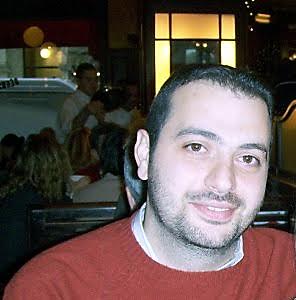
YOUSSEF HADDAD
Islamic law, Hadith, Qur’anic exegesis
B.A. (2001), Philosophy, American University in Beirut
M.A. (2005), Philosophy, American University of Beirut
Youssef Haddad received his Ph.D. in Islamic Studies. His research interests were in the fields of Islamic law, Hadith, and Qur’anic exegesis. Other research interests included postcolonial theory, national identity, and social movements. He has taught philosophy and cultural studies at the American University of Beirut.
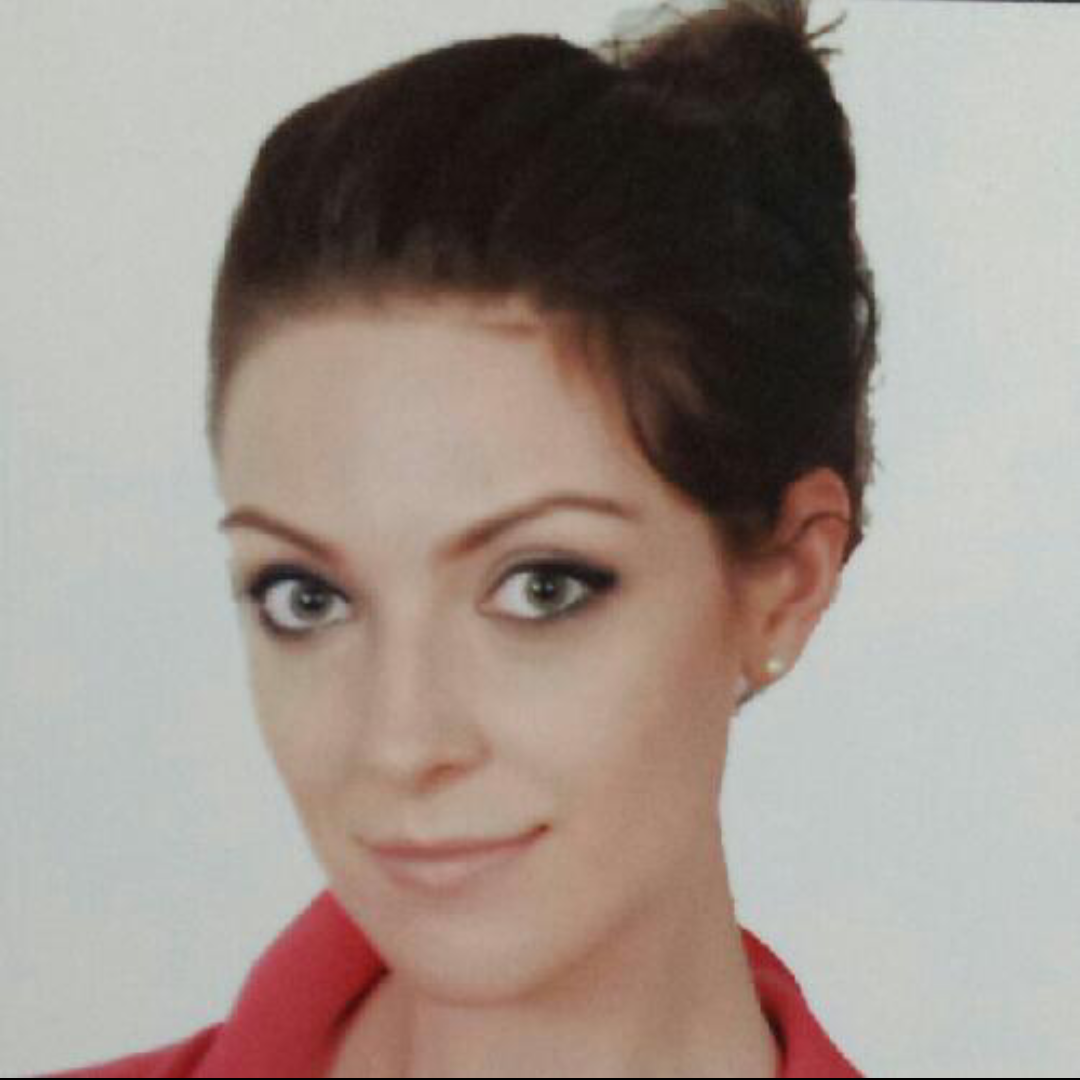
NADINE HAMDAN
Arabic sociolinguistics
M.A. (2011), Arabic Language and Literature, Islamic Studies and Linguistics, Universität Bayreuth, Germany
Nadine worked on her Ph.D. in Arabic Studies. Her dissertation, tentatively entitled “Construction of National Identity in Hizbullah’s Political Discourse,” explores linguistic and discursive strategies, such as indexicality and dialogicality, in Hizbullah’s political documents and speeches of its Secretary General Nasrallah in relation to the construction and negotiation of sectarian and national identity in Lebanon.
In November 2012, she presented a paper at the Middle Eastern Studies Association Annual Meeting in Denver, Colorado, “From “Let Me Finish” to “Eat Shit”: How a Lebanese Political Talk Show on the Conflict in Syria Went Sour,” and has several publications forthcoming. For her most recent publication, see the News section of our website.
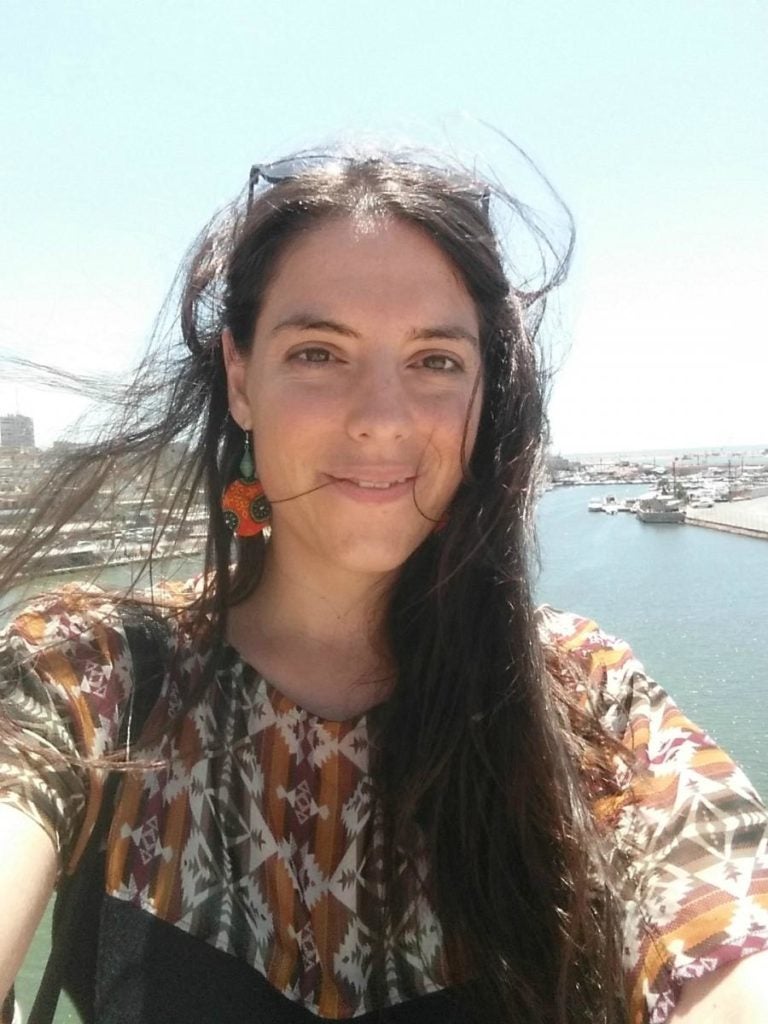
MARYA HANNUN
Intellectual history, religious reform, gender
M.Sc. (2011), with Distinction, Anthropology, London School of Economics
B.A. (2009), Middle East Languages and Culture, Columbia University
Awarded the Lucy Mair Prize for her MSc Dissertation, LSE (2011)
Marya’s interests include intellectual history, gender, and Islamic reform in the early 20th century Middle East and South Asia. Her work situates Afghanistan in the broader global transformations of the early 20th Century, examining regional solidarities and the flow of ideas beyond the framework of the nation-state. In addition to her doctoral work, she is an avid Instagrammer, occasional freelancer, and organizer of the DC Palestinian Film & Arts Festival. She loves languages and reads Arabic, French, Farsi, and Urdu.
For her most recent papers, see the MESA section of our website.
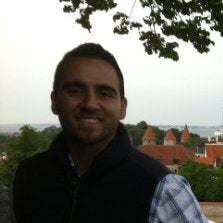
NAZIR HARB
Arabic sociolinguistics
M.A. (2013), Arab Studies, Georgetown University
M.P.A. (2011), Public Affairs, Princeton University
B.A. (2008), Sociology and International Relations (minor in Philosophy), Seattle University
Nazir was a Ph.D. candidate in Arabic Sociolinguistics (all but dissertation). His research interests covered the co-production, conflicting relations, and transmission of semiotic systems; Linguistic/Semiotic Anthropology, Multimodal Interaction, Interperformance, Intertextuality, Discourse Analysis, Rhythmic Organization, Spatial Epistemics, Cybernetics, Identity & Distributed Cognition, Cognitive Blending, Voice Registers; Anthropology of Revolution, the Arab Spring Uprisings; Islamophobia, Islam and Muslims in America/the West.
He co-authored an article on “Post-9/11: Making Islam an American Religion,” with Yvonne Haddad, Religions 5 (2014): 477-501. This article examines the rise of anti-Muslim and anti-Islam sentiment known as “Islamophobia” and argues that it is important to highlight both progressive and conservative developments in American Muslim communities since 9/11.
Nazir has presented several papers at academic venues, among which: “Inclusion & Exclusion in The ‘New Egypt’: Egyptian Identities & Codes Emerging from the 2011 Revolution”, presented at Georgetown University Graduate Workshop on Discourse, Politics & Identity hosted by visiting professor Ruth Wodak of Lancaster University, April 4, 2014. The paper examined three speeches by former Egyptian President Morsi to identify conceptual metaphors using a critical discourse analytical framework. Focused on implications of grounding metaphors that seem to include some constituencies while excluding others.
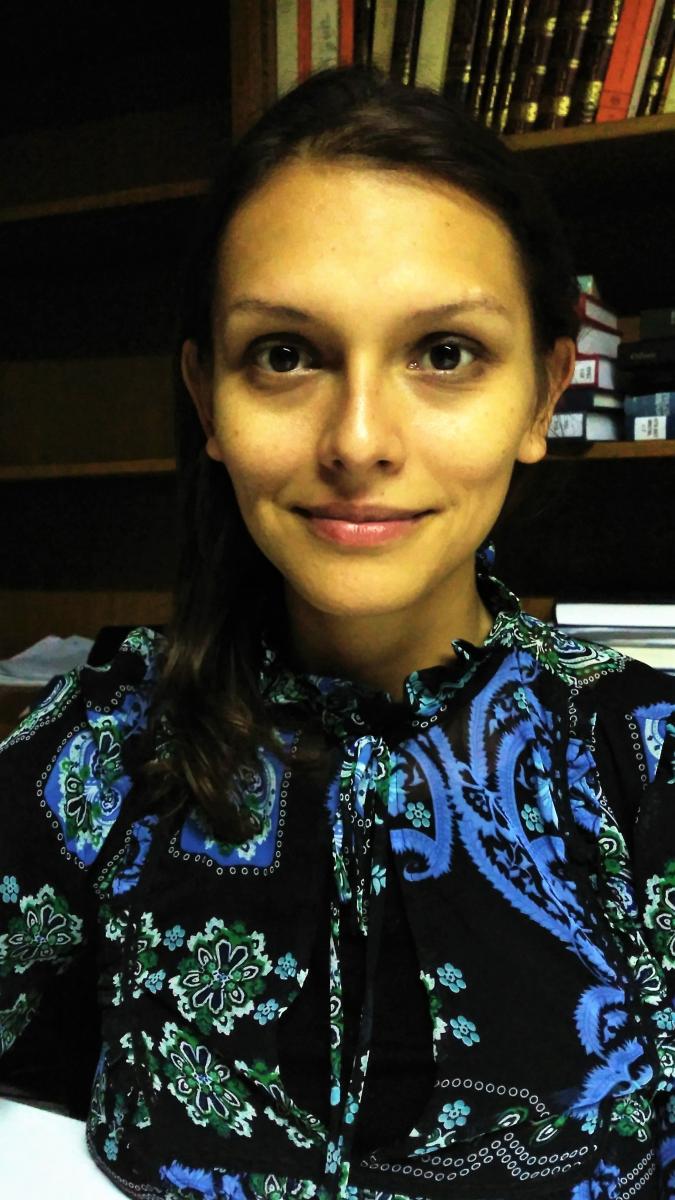
PAMELA KLASOVA
Arabic literature and adab, intellectual history
M.A. (2011), Arabic Studies, Leiden University, Netherlands
Magistr (5-year degree) (2008), Arabic Philology, History and Culture of Islamic Countries, Charles University, Prague
Magistr (5-year degree) (2007), Dutch Philology, History and Culture of Islamic Countries, Charles University, Prague
Pamela Klasova was a doctoral candidate at Georgetown University in the Department of Arabic and Islamic Studies at Georgetown University. Her dissertation examined Islamic imperial ideology formation through a case study of al-Hajjaj ibn Yusuf al-Thaqafi (d.714), the formidable Umayyad governor of Iraq. While in the study of the early Islamic empire, the focus has been on Islamic conquests, she focused on the ‘soft power’ at play and looked at the role of culture and language in the construction of imperial power. She coordinated a literary approach to later Muslim history with the study of contemporary material culture and non-Muslim texts. Her research falls into the field of early Islamic history; yet she approached it from a broader perspective than usual, hoping to contribute to the attempts at bringing early Islam out of isolation onto the world stage of late antiquity. She holds a Master’s degree in Middle Eastern Studies from Leiden University in the Netherlands and a Magister degree in Arabic and Dutch philology from Charles University in Prague. She has also studied Arabic and Persian language and literature at a number of universities across the Middle East and North Africa (Beirut, Damascus, Cairo, Tunis, Amman, and Tehran). She is a member of the School of Abbasid Studies and the Holberg Seminar on Islamic History.
She was one of the two founders of the Georgetown Graduate Association for Islamic Studies.
During the academic year 2016/2017, Pamela was a doctoral fellow at the Orient Institut in Beirut, Lebanon.
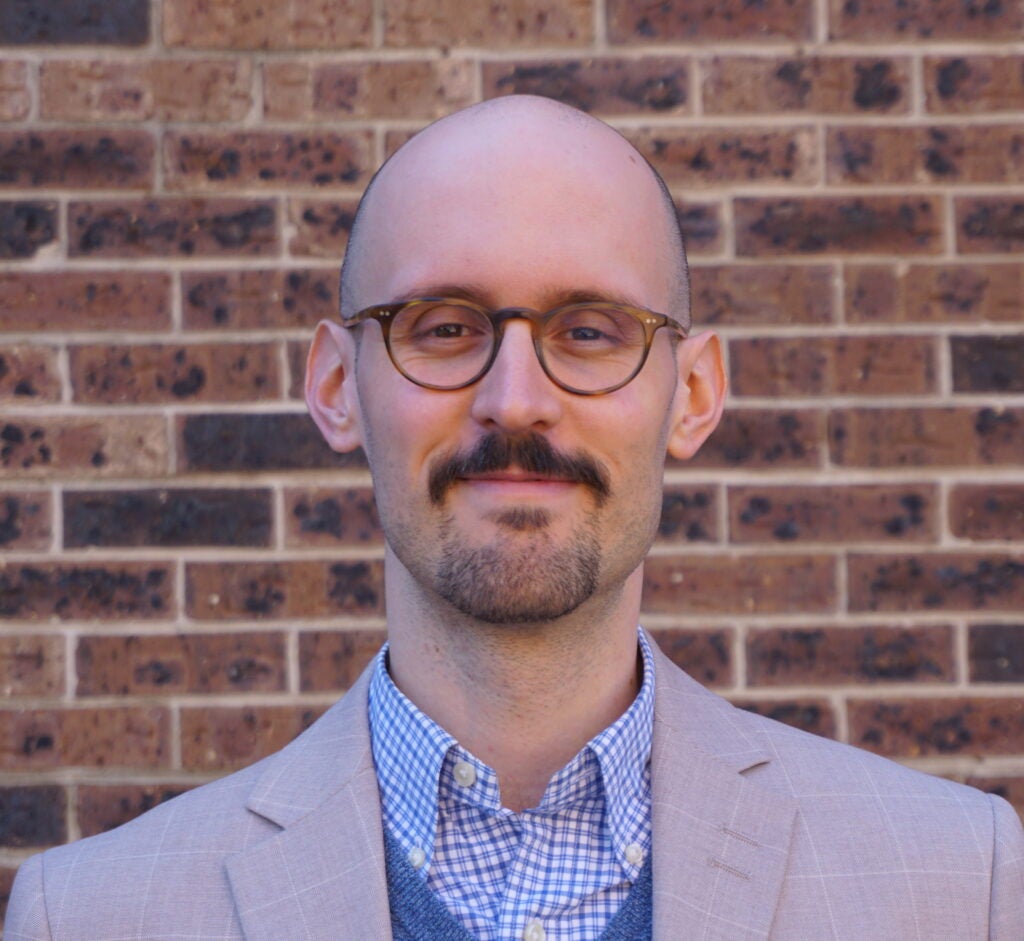
NICHOLAS MANGIALARDI
Arabic music, poetry, and culture
M.A. (2013), Near Eastern Languages and Cultures (Arabic), Ohio State University
B.A. (2011), Linguistics and Arabic, University of Illinois, Urbana-Champaign
Georgetown Graduate Teaching Assistant Award in Humanities, Arabic (2014)
Nicholas joined the Ph.D. program in 2013. He received his MA in Near Eastern Languages and Cultures (Arabic) from the Ohio State University in 2013 and his BA in Linguistics and Arabic from the University of Illinois at Urbana-Champaign in 2011. His research interests are at the intersection of Arabic music, poetry, and culture. He has conducted research in cities throughout Egypt on the development of hip-hop culture in the country. He is also interested in the use of traditional Arabic instruments in contemporary music.
He recently contributed a chapter on “Hip Hop and International Voices of Revolution: Egypt,” to the volume J. Bailey (ed.), Philosophy and Hip Hop: Ruminations on Postmodern Cultural Form, Palgrave Macmillan, NY, 2014, p. 103-117. For his most recent papers, see the News section of our website.

MIGUEL MERINO
Classical and contemporary Arabic poetry
B.Mus. (2008), Studio Music and Jazz, University of Miami
Miguel is a musician and linguist whose research interests include contemporary Arabic poetry and classic poetic forms like the muwashshah. He is also the leader of the Sudanese-American music group Otaak Band.
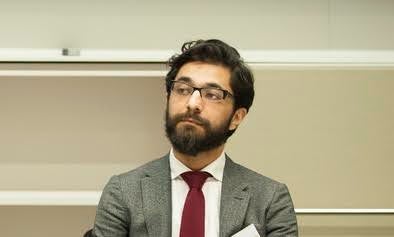
ABDUL RAHMAN MUSTAFA
Legal theory, comparative law, intellectual history, theology
M.St. (2005), Modern History, University of Oxford
L.L.B. (2003), First Class Honors, London School of Economics
Abdul Rahman was a Ph.D. candidate in Islamic Studies (all but dissertation). His research interests covered Islamic legal theory, comparative law, intellectual history, theology as well as political theory.
He has published a monograph, On Taqlīd: Ibn al Qayyim’s Critique of Authority in Islamic Law, Oxford University Press, New York, 2013, and several articles, including “From the Hudood Ordinances to the Protection of Women Act: Islamic Critiques of the Hudood Laws of Pakistan,” with Moeen H. Cheema, UCLA Journal of Islamic and Near Eastern Law (2008-09) as well as entries in the Oxford Encyclopedia of Islam and Law, Oxford University Press, New York (“Proof, Standards of,” “Pakistan,” and “South Asia: An Introduction”).
In 2014, he participated in the Liberal Arts International Conference hosted by Texas A&M University at Qatar on “Antinomialisms in Urban Critique: The Urban Environment of Mecca and Medina.”

RASOUL NAGHAVI NIA
Social and political movements, Islamic legal theory
M.A. (2013), Conflict Resolution, Eastern Mennonite University, Virginia
Ph.D. Candidate (2011), Islamic Jurisprudence (Usūl al-Fiqh), Islamic Seminary of Qum, Iran
M.A. (2009), Islamic Jurisprudence (Usūl al-Fiqh), Islamic Seminary of Qum, Iran
Rasoul is a Ph.D. candidate in Arabic and Islamic studies. Prior to joining the department of Arabic and Islamic Studies at Georgetown, he spent several years at the Islamic seminary of Qum in Iran where he earned an MA in Islamic Jurisprudence. He is interested in Islamic legal theory as well as the contemporary social and political movements in the Islamic world.
Before joining the program, Rasoul had already published several titles in the field of Islamic studies:
- Contemporary Shia Jurisprudence: A Reader (al-Nusūs al-Fiqhīyah al-Mu‛asarah), Huzeh Khāharān Press, Qum (Iran), 2009 (in Arabic), a textbook including selections from modern and contemporary thought in Shi‛a jurisprudence, that became a required textbook for graduate students in Shia women’s seminaries in Iran.
- By Gods, In Person (Bā Khodāyān Zamīn), Astan Quds Razavi Press, Mashhad (Iran), 2009. This book analyzes the definition and rulings connected to the notion of “paying allegiance to unjust monarchs,” analyzing this subject from the perspective of Shi‛a jurisprudence and Islamic tradition.
- Two Rakats Story (Du Raka’t Dāstān), Ketāb Āshnā Press, Tehran, 2008 (sold more than 100,000 copies). An adaptation of selected fatwas from Shi‛a jurists into 130 short stories for young adults.
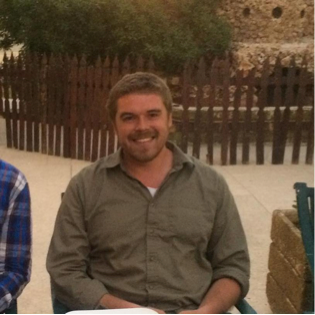
MIKE RAISH
Applied linguistics
B.A. (2009), Arabic Language & International Studies, Washington University in St. Louis
Mike was interested in topics related to Arabic acquisition, assessment, and proficiency testing. His dissertation examined the nature of written proficiency in Arabic, how this developing proficiency can best be measured in the written production of learners at different levels, and how the writing of Arabic learners differs from that of native speakers.

FUAD SALEH
Modern Arabic literature and culture, Arabic language and identity
M.A. (2010), Translation and Interpreting Studies (Arabic and English), University of Manchester (UK)
B.A. (2008), Anthropology (minor in Linguistics), American University in Cairo
Fuad is a Palestinian born in Tunis and raised in Cairo. He was educated at the American University in Cairo and the University of Manchester, where he earned an MA in Translation and Interpreting Studies. Before starting his Ph.D. (all but dissertation) in Arabic Studies at Georgetown, he worked for five years as a translator and Arabic instructor in Cairo and Washington, DC. His interests included Arabic language and identity, contemporary Arab culture, and diglossia in modern Arabic literature.
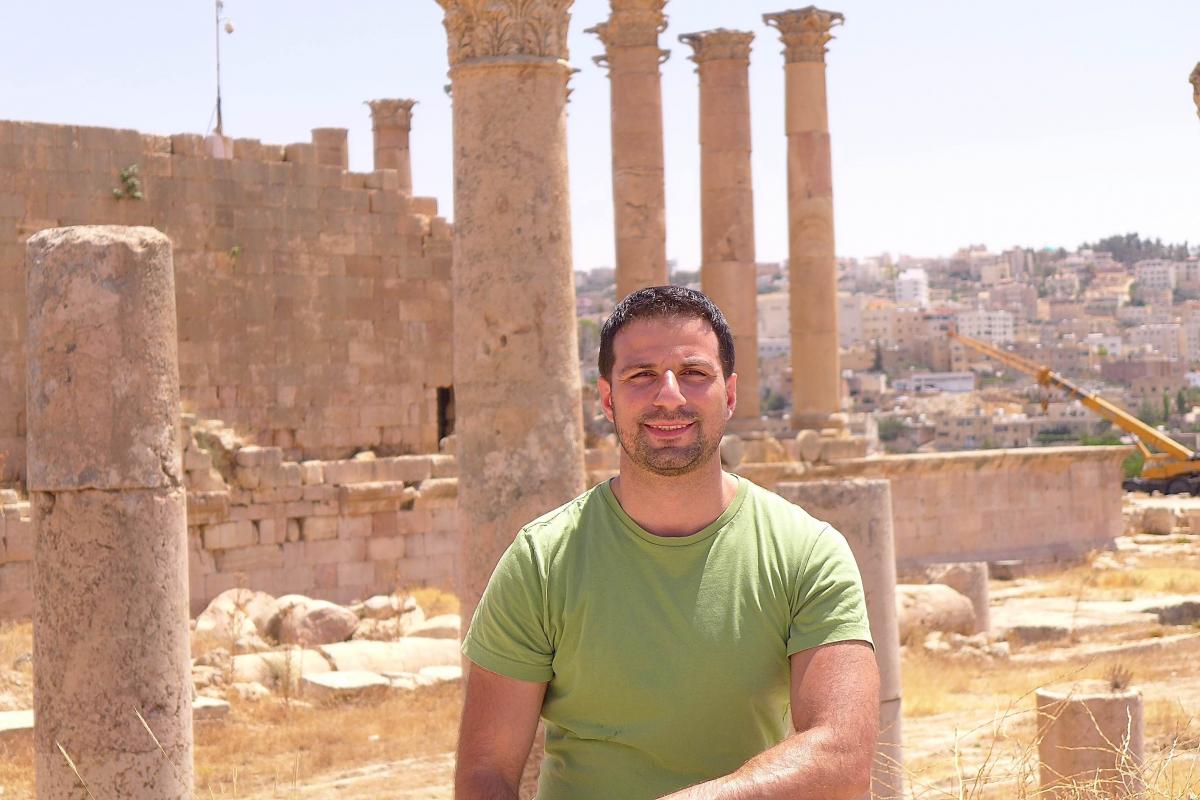
FRANCESCO SINATORA
Arabic sociolinguistics
M.A. (2008), Afro-Asiatic Studies, University of Pavia
B.A. (2005), Interpreting and Translation (Arabic, Italian, English, German), University of Trieste
Francesco joined the Arabic Ph.D. program in 2011. His research revolved around new writing practices on Syrian social media. His areas of study were Arabic sociolinguistics, Arabic poetry, and applied linguistics. He holds a BA in interpreting and translation (Arabic, Italian, English, German) from the University of Trieste and an MA in Afro-Asiatic studies from the University of Pavia. He delivered the paper “Hybridity on Syrian Facebook Pages” at the 2015 Georgetown University Roundtable on Language and Linguistics (GURT) annual conference. In his free time, he stays out of trouble swimming and playing the violin.

ABDALLAH SOUFAN
Classical theories of language; early Islamic intellectual history
M.A. (2004), Arabic Language and Literature, American University of Beirut
B.A. (2000), Arabic Language and Literature, American University of Beirut
B.S. (1996), Mathematics, American University of Beirut
Abdallah received his BS in Mathematics from the American University of Beirut (AUB) in 1996 and then taught Mathematics in high schools for several years before rejoining AUB for a BA and an MA in Arabic. He worked as a full-time Instructor at AUB between 2006 and 2010, teaching courses in Arabic Grammar, Modern Arabic Literature, Classical Arabic Thought, Islamic Theology, and Modern Arab Thought I, in addition to teaching Arabic as a foreign language in the summer sessions. In September 2010, he started working on his Ph.D. at Georgetown. Research interests included Classical Arabic theories of language (across the disciplines of Qurʾānic exegesis, theology, jurisprudence, grammar, philology, stylistics, logic, rhetoric, poetics, literary criticism, and philosophy), early Islamic intellectual history, and the formation of Arabic and Islamic disciplines.
He co-edited, with Abbas Hamdani, The Brethren of Purity: Epistle 48, translated by Abbas Hamdani, Oxford: Oxford University Press (forthcoming).
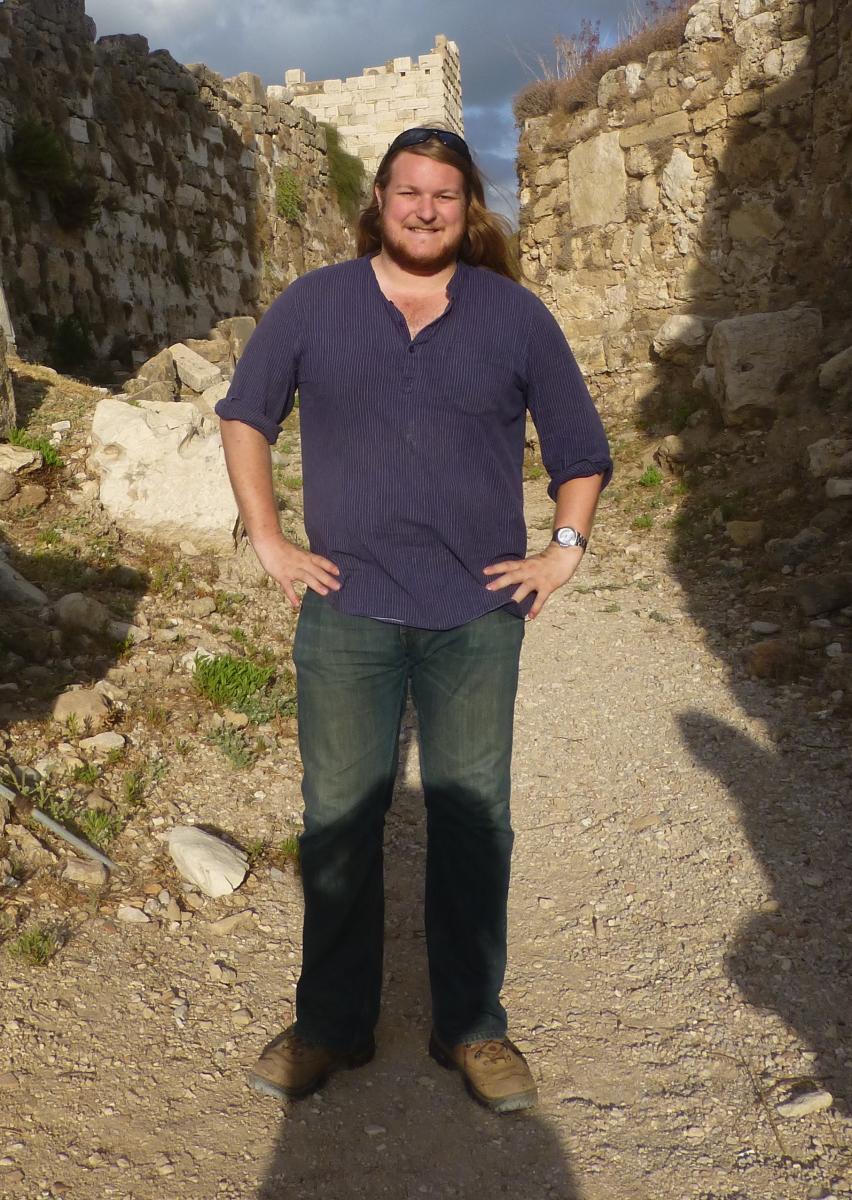
RICHARD SUTHERLAND
Intellectual history, political philosophy, classical Islamic literature
M.A. (2014), First Class Honors, Arabic and Medieval History, University of St Andrews
Richard was interested in the intellectual history of the Islamic world, particularly the political and ideological motivation of historical writing. Richard completed his undergraduate dissertation on early Ottoman historical writing and its transformation in the 14th and 15th centuries and intends to pursue similar research topics at Georgetown. Other research interests included: the transmission of knowledge from classical antiquity into the Islamic world, political philosophy, and classical Islamic literature and its origins.
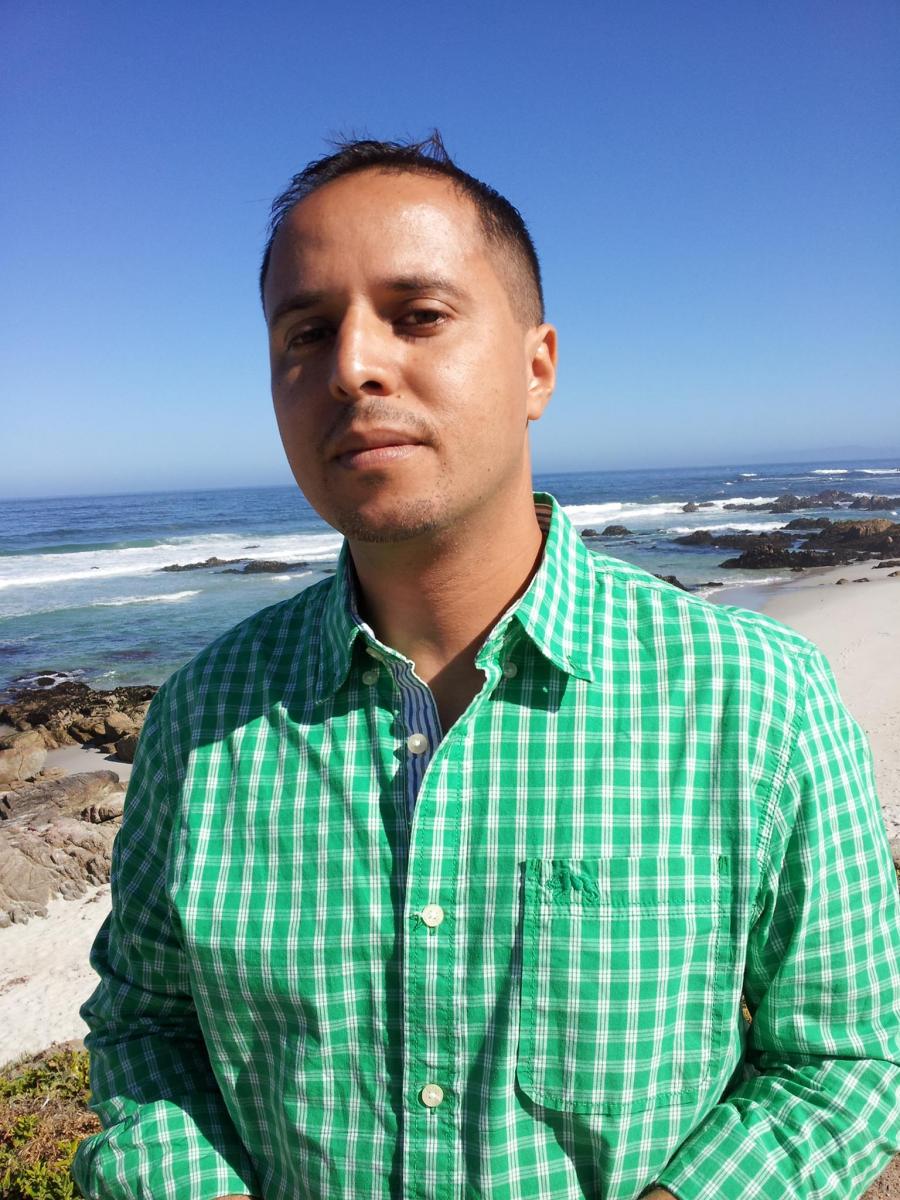
M. AMINE TAIS
Islamic intellectual history, modern Islamic thought, Qur’anic studies
M.A. (2012), Comparative Religion, University of Washington, Seattle
B.A. (2009), Near Eastern Studies, University of Washington, Seattle
Amine was a Ph.D. candidate in Islamic Studies (all but dissertation). His research interests include Islamic intellectual history, modern Islamic thought, and Qur’anic studies. He has presented numerous papers, including “The Battle for Western Muslims: Between Activist Projects and ‘Muslim’ Realities,” Pacific Northwest American Academy of Religion/Society of Biblical Literature (AAR/SBL), Portland, Oregon, 2012; “Beyond Reform: The Qur’an in the Works of Mohammed Arkoun and Nasr Abu Zayd,” American Academy of Religion, San Francisco, California, 2011; “Muhammad and Muslim Identity: Historical Images and Modern Challenges,” Pacific Northwest AAR/SBL, Spokane, Washington, 2011.
For his most recent papers see the MESA section of our website.